 Does this sound like you? Work feels exhausting. You arrive home each night only to want to fall straight into bed. You have little energy throughout the day and waking up each morning feels nearly impossible. Quite frankly, you’re on the edge of burnout. Or maybe you’re in the middle of it. Whatever.
Does this sound like you? Work feels exhausting. You arrive home each night only to want to fall straight into bed. You have little energy throughout the day and waking up each morning feels nearly impossible. Quite frankly, you’re on the edge of burnout. Or maybe you’re in the middle of it. Whatever.
The good news is, you don’t need to stay there. And that’s what we’re talking about today: how managing your time well can actually help you avoid burnout. We’ll look out why time management is such a big deal. Then we’ll dive into strategies you can start using today to start managing your time better so you can avoid unwanted burnout.
Let’s get to it. First off, here are just some of the advantages you’ll discover when you use good time management at work.
Advantages of Time Management at Work
There are various advantages that come along with efficient time management. In your work life, time management can assist you in the following ways:
1. Deliver Work on Time
 It’s simple: if you efficiently manage your time, you can deliver tasks on time. To properly manage your time, you must allocate each item on your list to a separate time slot. Studies have shown that tasks that are given a set amount of time to finish are more likely to be done on time.
It’s simple: if you efficiently manage your time, you can deliver tasks on time. To properly manage your time, you must allocate each item on your list to a separate time slot. Studies have shown that tasks that are given a set amount of time to finish are more likely to be done on time.
Another thing to consider is deadlines. Keeping track of deadlines can be challenging - and if you’re not cautious, you can easily miss them. If you are striving to reach your deadline, you must leave some tolerance for unexpected problems. Make sure you start on time to stay on track with your task so you can finish on time.
You can meet your deadlines every time if you carefully schedule the time required to finish your task.
2. Enjoy Increased Output and Efficiency
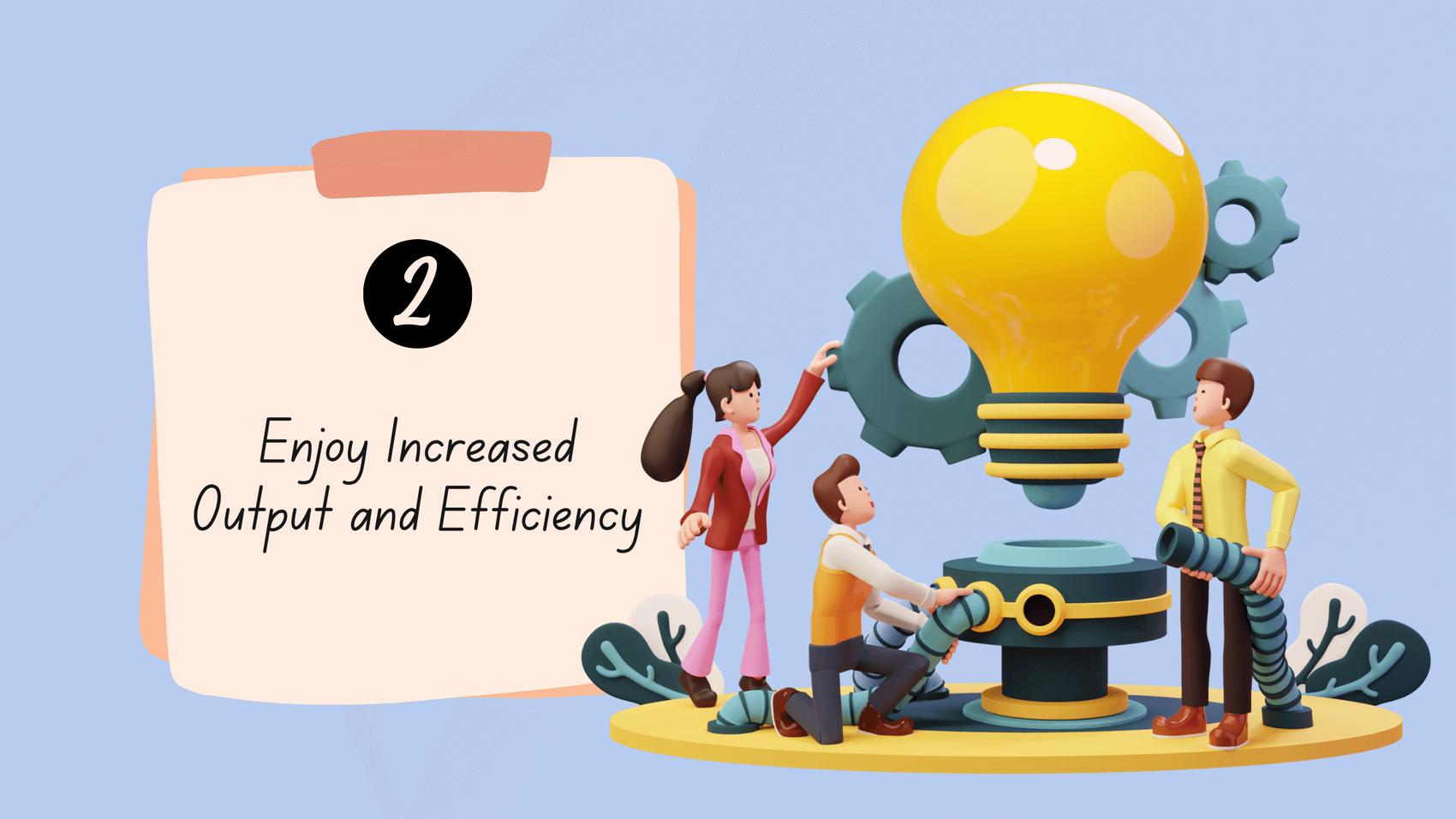 When you manage your time well, you can actually do more in your workday. Why? Because you’re getting things done efficiently and effectively without spending time on frivolous pursuits.
When you manage your time well, you can actually do more in your workday. Why? Because you’re getting things done efficiently and effectively without spending time on frivolous pursuits.
This doesn't imply you should rush through your work and ignore quality; it just means you should maximize the time you have. As a whole, your output will suffer if you let yourself get sidetracked by trivial activities. Effective time management, on the other hand, allows you to attend to both pressing and crucial matters without sacrificing efficiency.
You probably already know this, but procrastination is the key culprit for why people usually do not complete their work on time. But when you’re intentional about managing your time, your tendency to delay and procrastinate over critical duties decreases.
3. Produce High Work Quality
 Let’s face it: good work is appreciated in every industry. And as your productivity rises, so does the standard of output. So, when you organize your time well and give each task its due, you automatically produce better results.
Let’s face it: good work is appreciated in every industry. And as your productivity rises, so does the standard of output. So, when you organize your time well and give each task its due, you automatically produce better results.
Or, saying it a different way, better time management results in higher concentration which allows you to address the most pressing projects which ultimately creates a higher standard of work. Bingo.
4. Access Greater Possibilities and Career Advancement
 Being on time in and at work shows that you respect your employer's time and are a responsible team member. Knowing that your superiors and supervisors can count on you to show up and finish projects on schedule can open doors to advancement.
Being on time in and at work shows that you respect your employer's time and are a responsible team member. Knowing that your superiors and supervisors can count on you to show up and finish projects on schedule can open doors to advancement.
5. Experience Improvements in Work-Life Balance
 Do you remember the last time you did anything just for fun? You don't remember, do you? Time management skills allow you to free up more of your day for the sorts of fun pursuits that truly brighten your mood. In the end, this helps you strike a healthy balance between putting in a good day's work and rewarding yourself in some way.
Do you remember the last time you did anything just for fun? You don't remember, do you? Time management skills allow you to free up more of your day for the sorts of fun pursuits that truly brighten your mood. In the end, this helps you strike a healthy balance between putting in a good day's work and rewarding yourself in some way.
Perhaps the most significant advantage of time management is a more balanced work and personal life. A healthy work-life balance involves finding a healthy balance between your personal and professional responsibilities. It’s time to spend less time at the office and more time with the people who really matter to you at home.
Strategies You Can Utilize to Improve Your Time Management
Now that you know why time management is such a big deal, it’s time to look at specific strategies you can start using today to take back control of your schedule.
1. Make a To-Do List
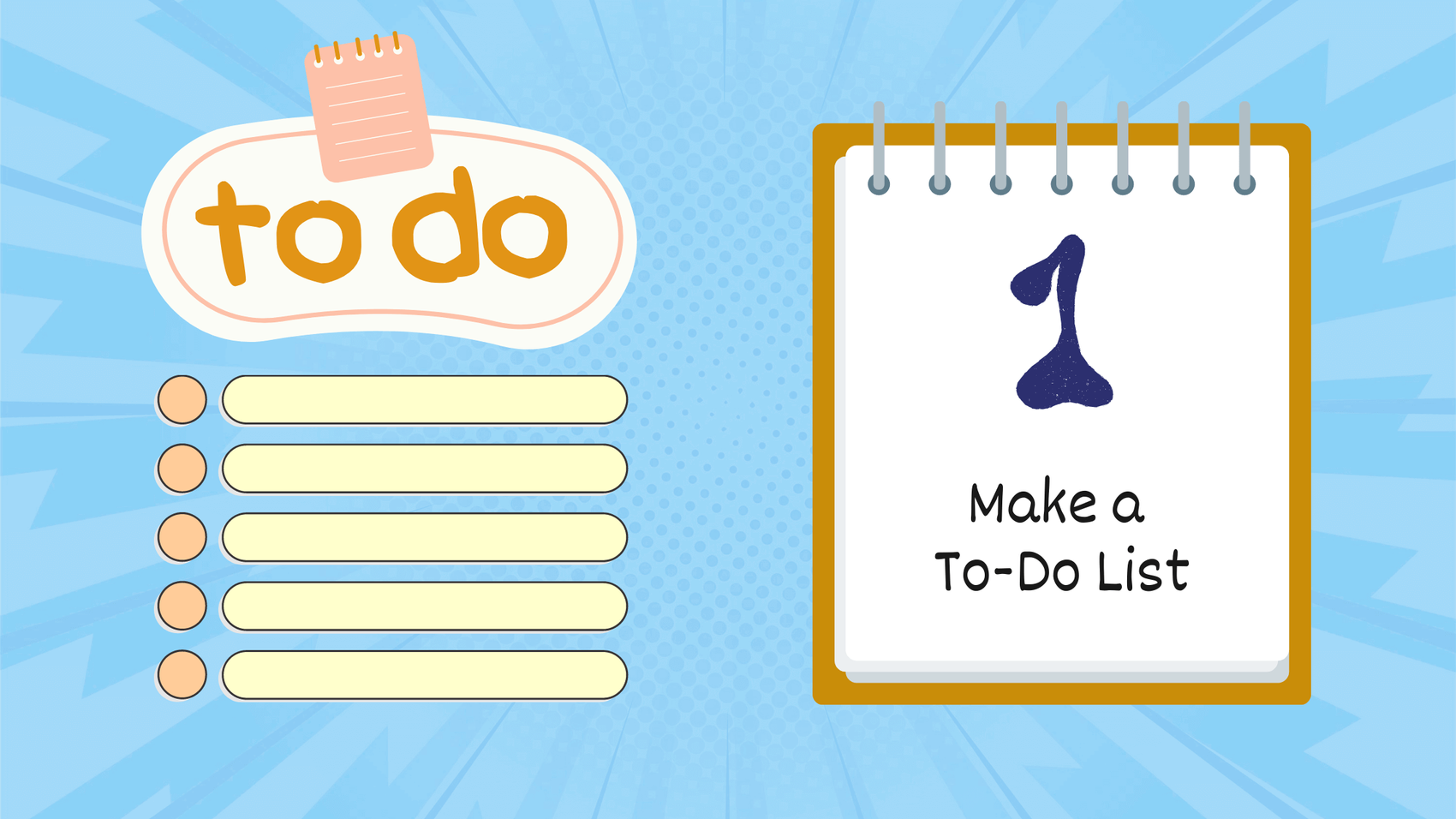 If you need help keeping track of everything you have to accomplish, try making a list. Separate lists, such as one that includes only today's activities, can also be helpful. This way you won’t get overwhelmed by seeing everything that needs to be done all at once.
If you need help keeping track of everything you have to accomplish, try making a list. Separate lists, such as one that includes only today's activities, can also be helpful. This way you won’t get overwhelmed by seeing everything that needs to be done all at once.
2. Maintain a Time Log
 The best way to learn how to effectively manage your time is to keep track of it. Make an educated guess as to how long it will take you to finish a project. Then, keep track of how much time you really spent on the task versus how long you thought it would take.
The best way to learn how to effectively manage your time is to keep track of it. Make an educated guess as to how long it will take you to finish a project. Then, keep track of how much time you really spent on the task versus how long you thought it would take.
Keeping track of your time can help you become more present and aware during the working day. And with the correct time management tool, you can even keep a record of all the time you've spent on a project, broken down into individual tasks.
3. Use Apps and Tools for Time Management
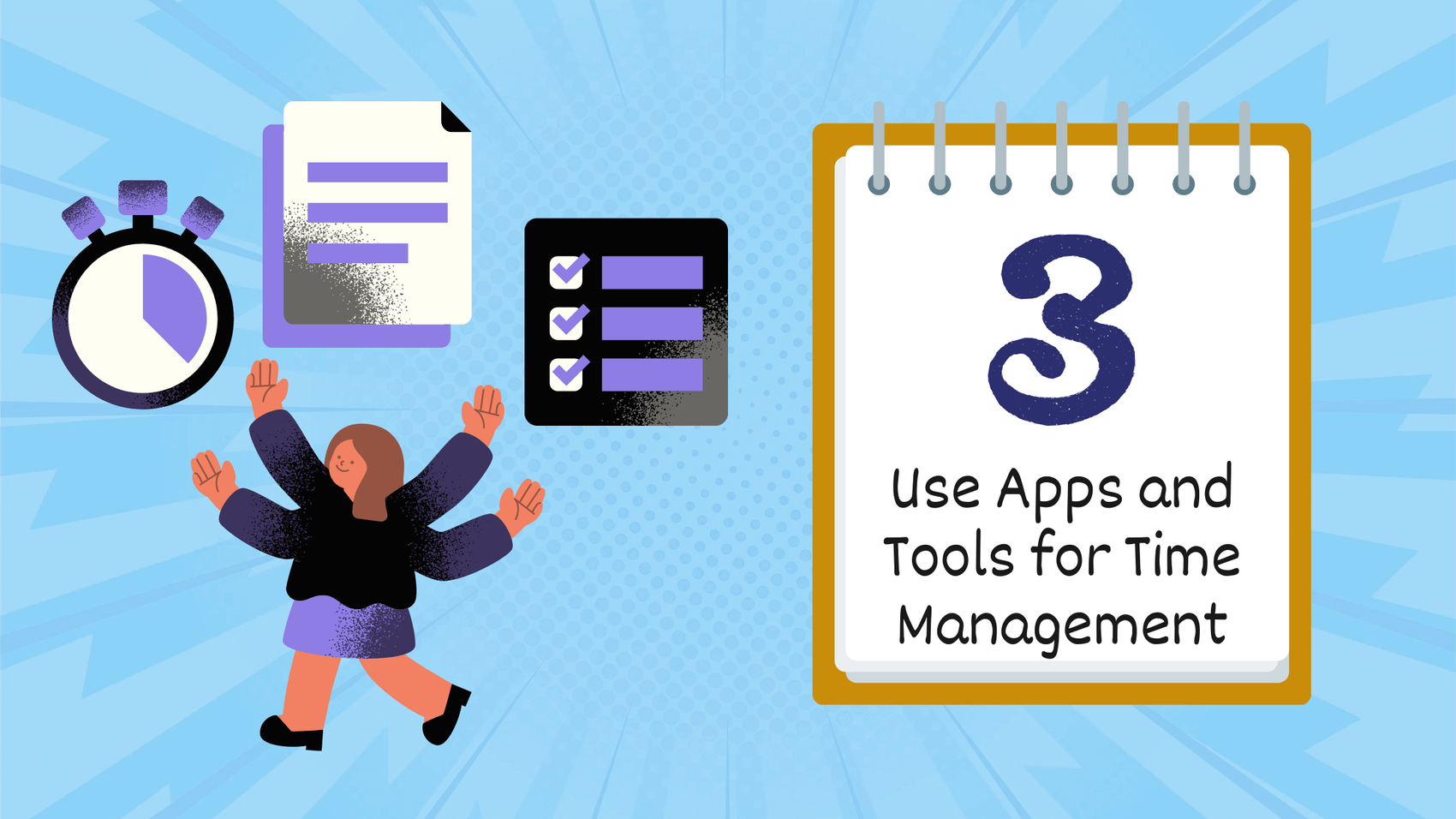 A time-tracking solution is only one of several time management applications and tools available. Additional apps like Freedom make it possible to block access to potentially distracting websites. Meanwhile, Asana, Airtable, and Trello are just a few examples of project management software that may help you get everything under control while also visualizing your progress. Plus, if you want to increase project transparency and time monitoring, you can sync these apps with your time-tracking system.
A time-tracking solution is only one of several time management applications and tools available. Additional apps like Freedom make it possible to block access to potentially distracting websites. Meanwhile, Asana, Airtable, and Trello are just a few examples of project management software that may help you get everything under control while also visualizing your progress. Plus, if you want to increase project transparency and time monitoring, you can sync these apps with your time-tracking system.
4. Don't Try to Juggle Too Many Things at Once
 Mistakes, misunderstandings, and a general sense of being overworked are all possible outcomes of trying to juggle too many duties at once. Of course, there may be occasions when you just have to switch gears, but wherever possible, try to see one assignment through to its conclusion before going on to the next.
Mistakes, misunderstandings, and a general sense of being overworked are all possible outcomes of trying to juggle too many duties at once. Of course, there may be occasions when you just have to switch gears, but wherever possible, try to see one assignment through to its conclusion before going on to the next.
5. Conduct Time Audits Each Week
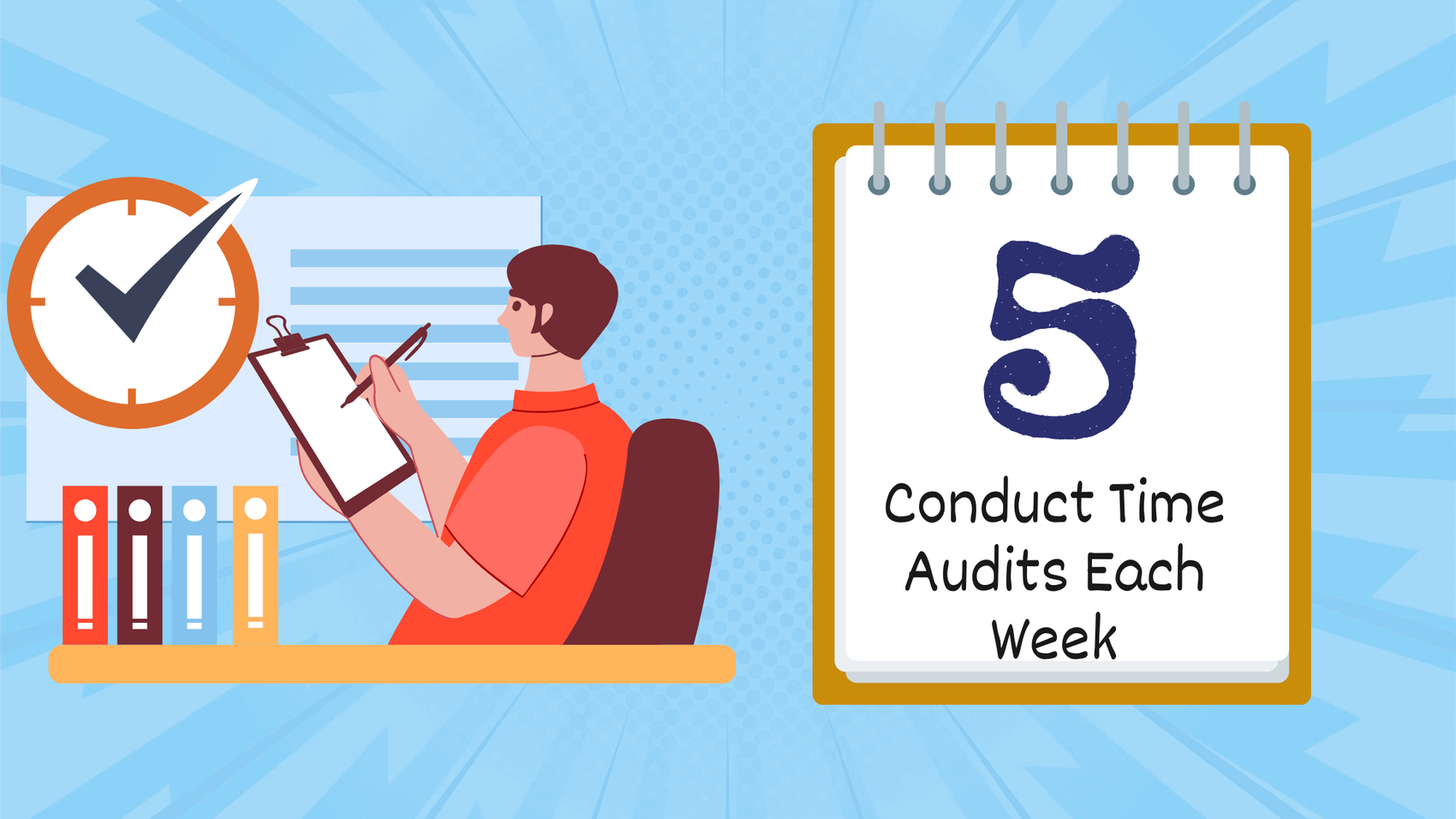 The best way to get better at managing your time is to conduct an audit of how you spend it. As we mentioned earlier, keep track of how much time you plan to devote to a certain task each week. Time yourself while you work on each project to see how long it takes to finish. You will have a record towards the end of the week that allows you to compare the time you really spent working with the time you estimated. Modify your strategies for handling time effectively in light of this information. Then, keep comparing your progress from week to week in order to spot patterns and make steady advancements.
The best way to get better at managing your time is to conduct an audit of how you spend it. As we mentioned earlier, keep track of how much time you plan to devote to a certain task each week. Time yourself while you work on each project to see how long it takes to finish. You will have a record towards the end of the week that allows you to compare the time you really spent working with the time you estimated. Modify your strategies for handling time effectively in light of this information. Then, keep comparing your progress from week to week in order to spot patterns and make steady advancements.
6. Schedule Your Breaks
 Breaks are vital for helping us focus. The brain performs best when flipping between times of intense focus and unfocus. By adding breaks to your routine, you can be sure you’re disengaging at the ideal times. Use your breaks to get a drink, grab a snack meal, chat with co-workers, or go for a walk. Your mind will thank you for the time off.
Breaks are vital for helping us focus. The brain performs best when flipping between times of intense focus and unfocus. By adding breaks to your routine, you can be sure you’re disengaging at the ideal times. Use your breaks to get a drink, grab a snack meal, chat with co-workers, or go for a walk. Your mind will thank you for the time off.
7. Organize Your Workspace
One way to keep from getting sidetracked is to maintain order in one's real and virtual environments. Thanks to your newfound order, you won't have to rummage through piles of paper trying to dig up a pen or old emails. Create folders or apply labels to your inbox to keep related emails for a project together. You should also keep as few things as possible on your desk to free up physical space. It's impossible to achieve either efficiency or organization without the other.
8. Practice Eliminating Bad Habits
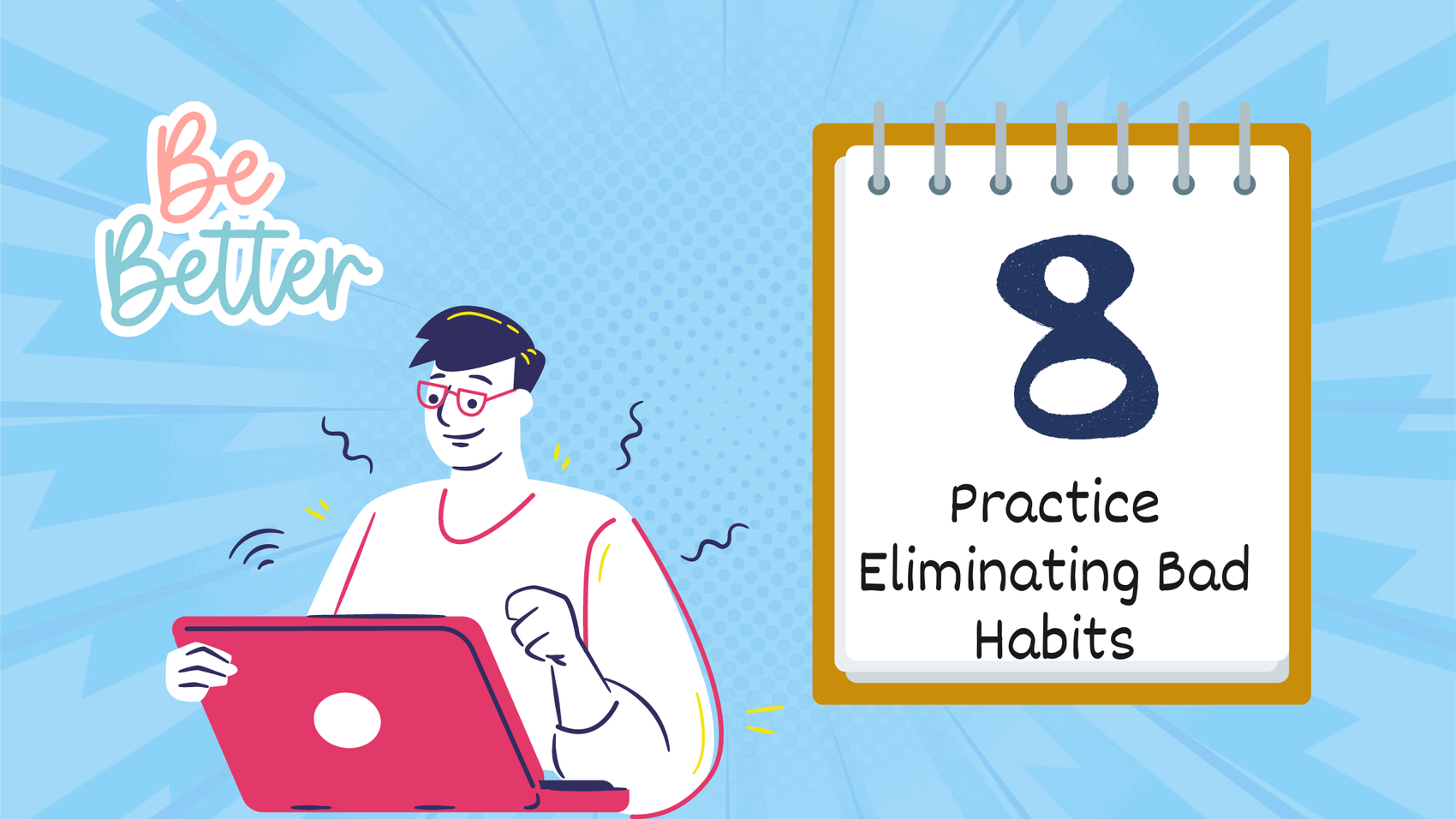 Psychologists estimate that it can take anywhere from 21 to 66 days to form a new routine. Unlearning habits can also be time-consuming. Checking social media at work or answering calls or texts from friends is a bad thing to do when you’re trying to get a project done. Frankly, these can prevent you from improving your time management skills. Attempt to recognize your undesirable behaviors and then intentionally avoid or unlearn them. Create a firm plan and adhere to it. Knocking those bad habits may be easier than you think.
Psychologists estimate that it can take anywhere from 21 to 66 days to form a new routine. Unlearning habits can also be time-consuming. Checking social media at work or answering calls or texts from friends is a bad thing to do when you’re trying to get a project done. Frankly, these can prevent you from improving your time management skills. Attempt to recognize your undesirable behaviors and then intentionally avoid or unlearn them. Create a firm plan and adhere to it. Knocking those bad habits may be easier than you think.
The Bottomline
When you’re feeling burned out, you see little to no value in your employment. You’re exhausted and even a molehill can feel like a mountain. But you don’t need to stay here.
Pick even one of the strategies above to get started with. Then come back and try another. Watch as little by little, you take back control of your time and experience the freedom that good time management can bring. It’s not beyond your reach to be more productive, make better decisions with your time, and clearly define your most important goals. But it all starts with wise time management.
Here’s to overcoming burnout and being the boss of how your time is spent! You got this.
